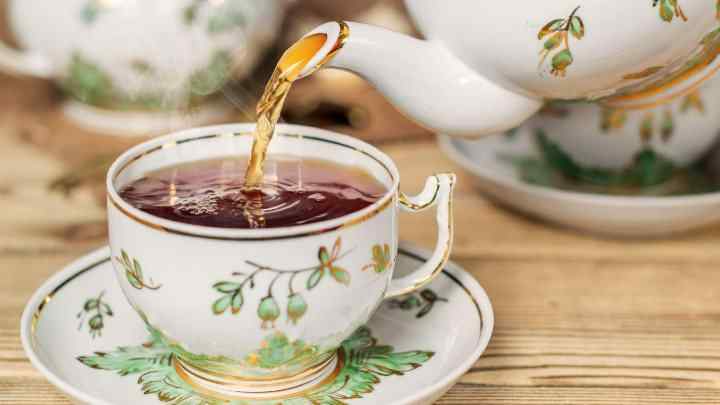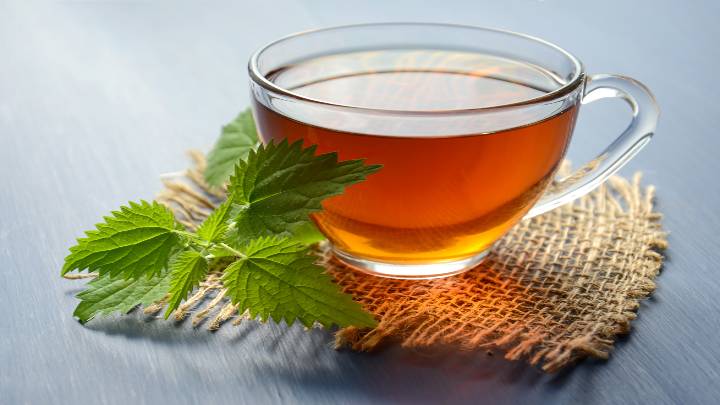You get nauseous from drinking tea as a result of the tannins present in the leaves. These tannins are the cause of the dry, bitter taste you get from tea and can greatly irritate your digestive tissue.
Digestive irritation as a result of tannins present in tea can result in unpleasant symptoms like nausea, vomiting, and stomach ache. However, the amount of tea required to cause these symptoms may vary from one person to another.
This article helps you understand how tea can make you nauseous, and what you can do to suppress or relieve the symptoms.
What causes nausea after drinking tea?
Nausea occurs after drinking tea as a result of the rise in stomach acid due to the tannins. This is especially true when it comes to herbal tea like green tea. The rise in stomach acid can then lead to constipation, nausea, and stomach.

Hence, it is advisable to never make the mistake of taking green or black tea on an empty stomach. Always take your tea during or immediately after meals to reduce the possibility of nausea.
SEE: Does Tea Go Bad? Find Out Here
Why is there tannin in tea?
Tannin is a naturally occurring component in tea, to begin with, and is quite concentrated in green and black tea. It is also responsible for that dry bitter taste you experience when you drink tea. Also, tannins are exceptionally useful when it comes to killing bacteria.
There is no easy way to cut back on the tannins present in tea. As long as you brew your tea for longer than two minutes with high heat, tannins will surely seep into the brew from the tea leaves.
Also, note that the more tea leaves you use in brewing your tea, the more potent the tannins will be in your tea. Taking that many tannins can lead to nausea. To avoid that much concentration of tannins, try brewing your tea with low heat for a short period of time.
What can you do to avoid or treat nausea when drinking tea?
To reduce the negative effects of tannin when you drink tea such as nausea or stomach ache, try adding some milk or honey. This blends with tannin and lowers the possibility of it inducing nausea.
Another way to avoid the feeling of nausea when drinking tea is by doing so after eating and not on an empty stomach. However, if you haven’t eaten beforehand and would love to have some tea, try taking it with some biscuits.
If you have done all these and still feel nauseous, here are some quick remedies you can employ to feel better;
- Drink anything with ginger or chew the ginger root as it helps with nausea.
- Eat something starchy like rice or bread.
- Use spices like cinnamon and cumin extract
- Get your breathing under control
- Drink carbonated beverages or water
- Inhale some peppermint.
- Take them with snacks like biscuits
SEE: How To Store Biscuits To Keep Them Crisp
Can you have an allergic reaction to tea?
Though somewhat rare, you can have an allergic reaction to tea. Teas that contain tannins and caffeine can cause mild to severe allergic reactions in some people.
Common symptoms when you are allergic to tannins or caffeine include migraines or headaches, bowel irritation, and/or stomach ache.
SEE: Is Green Tea Good for Weight Loss? What You Need to Know
FAQs
Can drinking too much tea kill you?
No, drinking too much tea won’t kill you but can be harmful and lead to some unpleasant situations at best. Excessive drinking of tea can lead to insomnia, bowel irritation, stomach ache, headaches, vomiting, and nervousness.
What are the side effects of green tea?
Common side effects of green tea include iron deficiency and anemia, insomnia, dizziness, bleeding disorders, vomiting or nausea, palpitations, convulsions, headaches, liver disease, and stomach ulcers among others.
What are the side effects of black tea?
Drinking black tea can cause nervousness and insomnia, palpitations, headaches, nausea and vomiting, anxiety, anemia, tremors, high blood pressure, frequent urination, irregular heartbeat, and ringing in the ears.
Conclusion
There are numerous reasons why drinking tea causes nausea. Some of them have to do with individual physiology, while others have more to do with the preparation and consumption of tea on an empty stomach.
Eating healthy and drinking plenty of water, can help reduce the tannin effects of tea and prevent nausea. Also, taking tea with snacks like crackers or adding some ginger and honey to it can prevent feelings of nausea.
Adding some condensed milk and spices to the tea will not only prevent nausea but will also convert that regular bland tea into a delicious and enjoyable milk tea beverage.
Wondering what a milk tea tastes like? Find out what makes milk teas like panda milk tea and masala chai tea so deliciously unique and how to make them at home.
I hope you found this article helpful. Thanks for reading.






